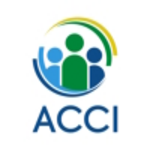
2024 Annual Conference
May 21–23, 2024
Hyatt Regency Milwaukee, Milwaukee, WI, USA
IMPORTANT NOTICE: The date, time, and room assignment of YOUR presentation is SUBJECT TO CHANGE.
Proposal authors can use this tool to see where they have been placed in the program agenda for an Oral or Poster Session.
Scroll down to search by the Submitter or Author Name, by Date/Time, or by Keywords.
Confirm your place in the schedule by following the instructionss that were emailed to you. Each presentation must have a separate paid registration. Contact the ACCI office immedicately by email at admin@consumerinterests.org to report any conflict, all corrections to the details of the presentation (including author names and the order they are listed as this is how it will be in the final program), or if you have any questions. Please be sure to reference the session title(s), date(s), and time(s) when you contact us.
B1c Understanding Long-Term Trends in Bank Account Ownership by Race and Ethnicity
Short Description
The proportion of all U.S. households without an account at a federally insured depository institution—the unbanked rate—declined by more than two-thirds between 1989 and 2022. Consistent with the trend in the national unbanked rate, unbanked rates among Black and Hispanic households—population segments with persistently high unbanked rates—also fell substantially. This research identifies key factors that contributed to long-term decreases in unbanked rates across race and ethnicity. The 1989–2022 triennial Survey of Consumer Finances, which contain a rich set of characteristics that can influence a household’s desire to have a bank account, are well-suited for our analysis. To provide further insight into barriers to bank account ownership, and how these barriers might have changed over time, we use the 2013–2021 biennial Unbanked and Underbanked Supplement to the monthly Current Population Survey to examine time trends in reasons unbanked households cited for not having a bank account. We also study other key outcome measures in these data: methods that banked households used to access bank accounts (e.g., bank tellers and mobile banking) and financial transaction products that households might use to substitute for certain functions of a bank account (e.g., nonbank money orders and check cashing).
Type of presentation
Accepted Oral Presentation